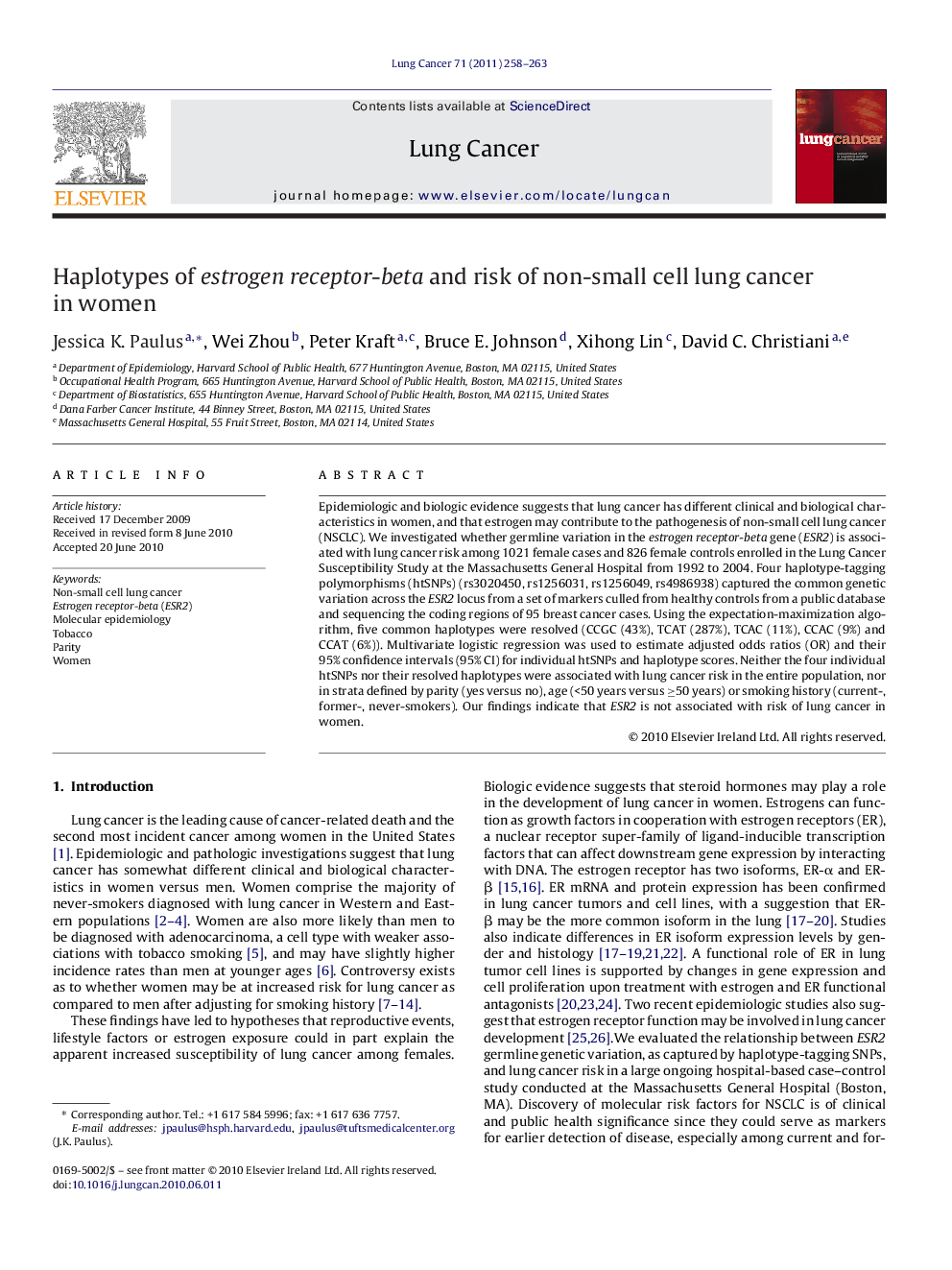| Article ID | Journal | Published Year | Pages | File Type |
|---|---|---|---|---|
| 2142047 | Lung Cancer | 2011 | 6 Pages |
Epidemiologic and biologic evidence suggests that lung cancer has different clinical and biological characteristics in women, and that estrogen may contribute to the pathogenesis of non-small cell lung cancer (NSCLC). We investigated whether germline variation in the estrogen receptor-beta gene (ESR2) is associated with lung cancer risk among 1021 female cases and 826 female controls enrolled in the Lung Cancer Susceptibility Study at the Massachusetts General Hospital from 1992 to 2004. Four haplotype-tagging polymorphisms (htSNPs) (rs3020450, rs1256031, rs1256049, rs4986938) captured the common genetic variation across the ESR2 locus from a set of markers culled from healthy controls from a public database and sequencing the coding regions of 95 breast cancer cases. Using the expectation-maximization algorithm, five common haplotypes were resolved (CCGC (43%), TCAT (287%), TCAC (11%), CCAC (9%) and CCAT (6%)). Multivariate logistic regression was used to estimate adjusted odds ratios (OR) and their 95% confidence intervals (95% CI) for individual htSNPs and haplotype scores. Neither the four individual htSNPs nor their resolved haplotypes were associated with lung cancer risk in the entire population, nor in strata defined by parity (yes versus no), age (<50 years versus ≥50 years) or smoking history (current-, former-, never-smokers). Our findings indicate that ESR2 is not associated with risk of lung cancer in women.
